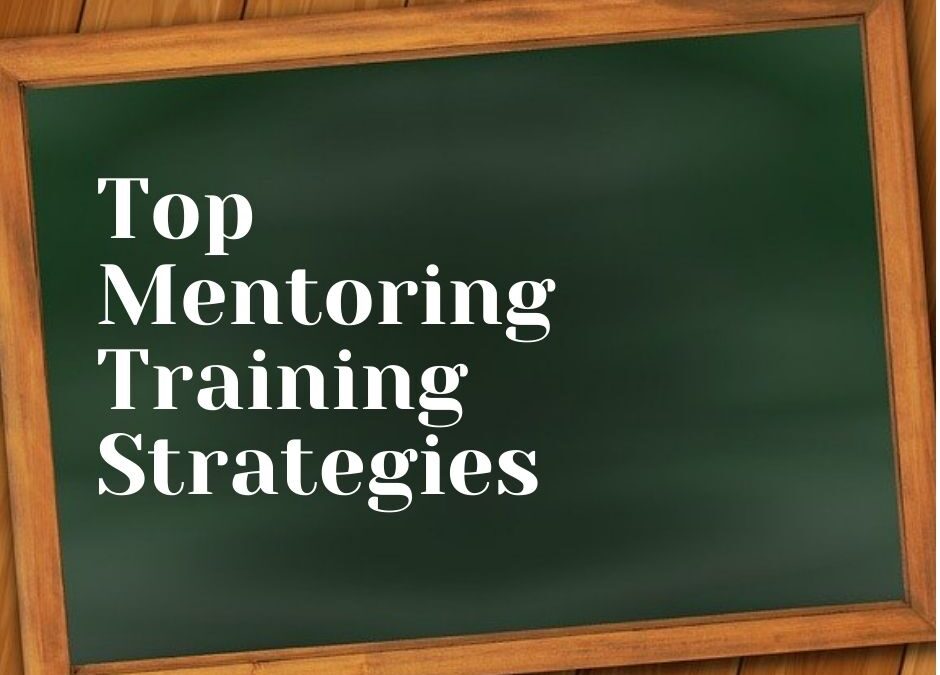Mentors are valuable resources in an organization. They are the ones who shape its future leaders. Undoubtedly a mentor needs skills and knowledge. Though some people have natural qualities to guide others, mentoring is not innate. Training is a vital part of executive mentoring; because the success of a mentoring program largely depends on how well-trained the mentor is.
Before getting into the training strategies, let’s find out Who Makes a Good Mentor?
Mentoring is not just about having expertise in a specific subject and sharing that knowledge with the mentee. There are a few qualities a good mentor possesses, such as:
- The mentor is motivated to shape others’ future
- He/she has leadership qualities
- Active listening is one of the best qualities of a mentor
- A good mentor has the ability to facilitate knowledge transfer
- Excellent communication skill is another quality of a good mentor
- A great mentor is able to see the bigger picture
Mentoring Training Strategies for New Mentors:
Mentoring training doesn’t have to be very long. Just 1-2 hour sessions for a week, practiced with feedback, is enough for a mentor to be ready.
Start the session with an introduction to mentoring. It’s better not to assume that the participants know everything about mentoring.
It’s always a good idea to follow up on the training with a special session where both mentor and mentee can discuss their expectations from the relationship. If expectations are clear and agreed upon from the beginning, there will be a lesser chance of disappointment and problems during the program.
There are many times when the mentor and mentee don’t know how to start their conversation. Provide them some guidance to prepare for their first session.
The most important part of mentoring training strategies for new mentors is the topics that will be discussed in each training session.
Here are 5 Topics to Include in a Mentoring Training:
1. The Objective of the Mentoring Program
Decide the objectives of the program early on and convey the same to the mentor during training. Throughout the program, the mentor needs to keep in mind the objective.
2. Role of a Mentor
A mentor plays a number of roles over the course of a relationship.
- As a teacher, a mentor shares skills and knowledge
- As a role model, a mentor inspires the mentee
- As a counselor, they listen carefully, know what to say and how to say.
- As a guide, they help their mentee take decisions that make a difference.
Let the participants understand their role as a mentor clearly.
3. Mentor’s Dos and Don’t
There are some unspoken rules that exist in mentoring, the dos and don’ts. Lack of knowledge on these rules can create problems in the relationship, which will lead to an unsuccessful mentoring program. Train your employees on what to do and what not to do as a mentor.
Dos:
- Focus on the mentee’s behavior, rather than character
- Listen carefully to the mentee
- Respect the mentee’s culture, differences, and of course, privacy.
- Teach through example
- Keep the relationship professional
- Be open to sharing personal experiences
- Be kind but honest when giving feedback to the mentee
- Be open to feedback
Don’ts
- Force the mentee to move in one direction
- Be overly critical
- Pretend to be perfect
- Take the role lightly
- Judge the mentee
- Talk unnecessarily or too much
- Make promises that cannot be kept
4. Mentoring Challenges:
There are always challenges in a mentoring relationship. Make sure the mentors are aware of those challenges and know how to overcome them.
Few common challenges in a mentoring relationship are:
- Failing to meet as scheduled or frequent postponements
- The mentor or mentee wants to meet more frequently than the program requires
- Unrealistic expectations and assumptions, such as the mentor expects the mentee to accept everything he/she has to offer
- Overdependence on the mentor/mentee
5. Overview of the Program
Keep a separate session to provide the mentors with information about the overview of the program. It is one of the vital mentoring training strategies for new mentors. Because this will help them feel connected to the program. Besides, the mentor will be clear about the program’s requirements and ground rules.
Here are a few things to discuss in this session:
- The organization’s expectations from the mentors
- The mode of the mentor-mentee meetings, whether it will be a face-to-face or virtual mentoring program
- The kind of support mentors will get from the program manager and process to communicate with them
- The rules and liabilities that are related to the program
At the end of each training session, ask the mentors for feedback. How useful was the session for you? Was there anything you thought was missing from the session? Do you have any questions regarding this topic?
This will help improve the overall experience and effectiveness of the training.
Also Read:
How to Find a Mentor – 5 Things to Remember
7 Ways to Create a Successful Group Mentoring Program
Train Your New Mentors With Best Techniques
Mentoring University’s training is based on humanistic psychology, with courses and techniques curated from thirty years of mentoring applied experience. Learn best practices for mentoring and get certified to be an effective mentor.
EXPLORE COURSES
